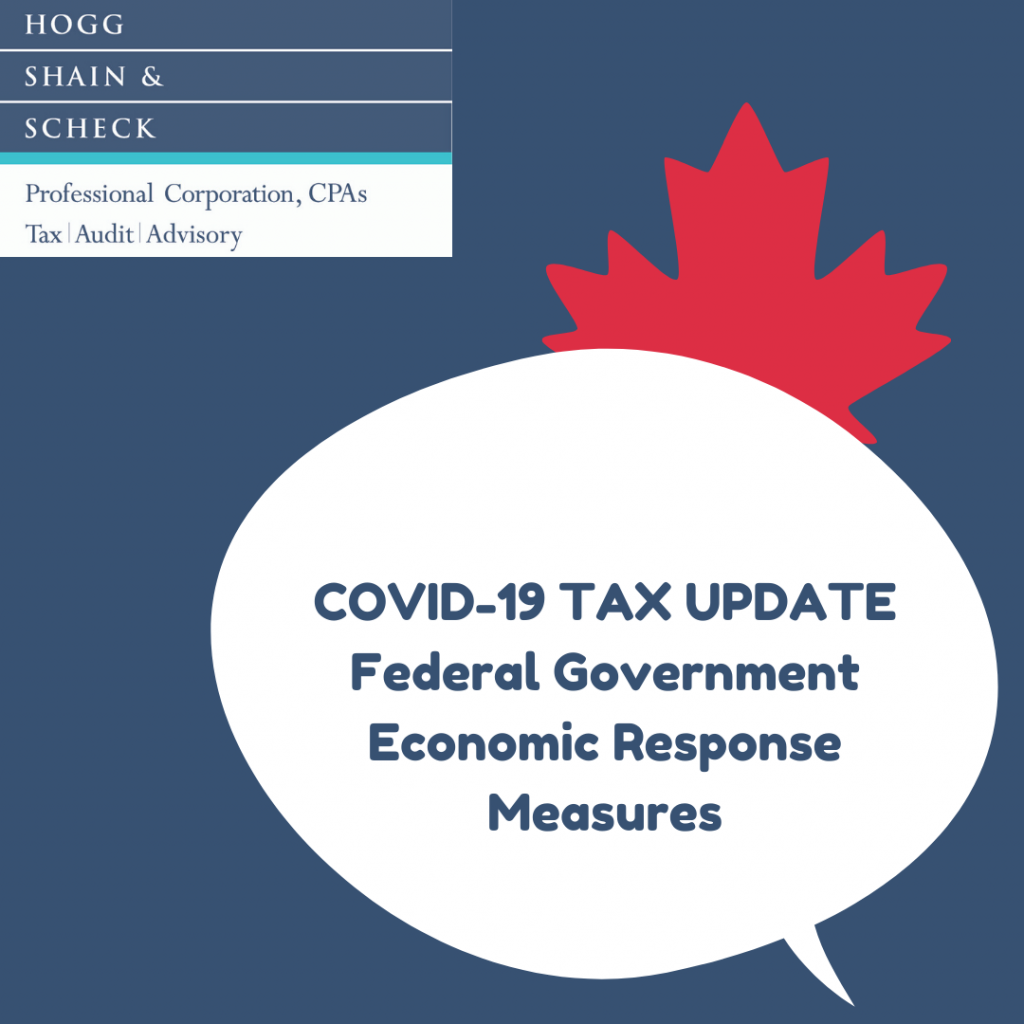COVID-19 TAX UPDATE Federal Government Economic Response Measures
(Released April 21, 2020)
Today, the Federal government finally provided details about the Canada Emergency Wage Subsidy. There have also been updates announced to some of the initiatives that have already taken effect. With that in mind, we wanted to provide the latest on the following economic response measures:
- Canada Emergency Wage Subsidy;
- Emergency Community Support Fund for Charities/Not-for-Profit Organizations (NPOs);
- Canada Emergency Business Account; and
- Canada Emergency Response Benefit.
Please note that updates to previously announced measures are highlighted in yellow.
Canada Emergency Wage Subsidy (CEWS)
The Federal government provided guidance with respect to applying for the CEWS. As of April 27, 2020, eligible employers can apply via:
- CRA’s My Business Account[i];
- CRA’s Represent a Client if your authorized representative(s) has online access; or
- an online web portal.
In addition, the CRA has launched a CEWS calculator to assist eligible employers in determining their subsidies. The CEWS calculator can be found here:
Emergency Community Support Fund (ECSF) for Charities/NPOs
A newly announced Federal program, the ECSF will help charities and NPOs maintain the important services and programs they provide to Canada’s most vulnerable people. The government has committed $350 million to the ECSF.
ECSF funds will be targeted to small, front-line organizations, as well as national groups with networks that can quickly and efficiently get funds to local organizations and vulnerable people. Money received under the ECSF is to be used on activities such as:
- home delivery of groceries, medications, and other essentials;
- transportation services, such as driving seniors to appointments;
- providing training and supplies to volunteers;
- scaling up help-lines; or
- setting up virtual contact/social gatherings for isolated people through telephone, texts, teleconferences, or the Internet.
Further details regarding timing of funds and the application process are expected soon.
Canada Emergency Business Account (CEBA)
As outlined in a previous update, the CEBA provides interest-free loans of up to $40,000 to small businesses and NPOs. Repaying the balance of the loan on or before December 31, 2022 will result in loan forgiveness of 25% (up to $10,000).
The eligibility criteria for a borrower are as follows:
- is a Canadian operating business in operation as of March 1, 2020;
- has a federal tax registration number;
- had total employment income paid in the 2019 calendar year between $20,000 and $1,500,000;
- has an active business chequing/operating account[ii] with the lender, which is its primary financial institution;
- has not previously applied for a CEBA loan and will not apply for one at any other financial institution;
- acknowledges its intention to continue to operate its business/resume operations; and
- agrees to participate in post-funding surveys conducted by the Government of Canada or any of its agents.
Canada Emergency Response Benefit (CERB)
In response to criticism that CERB eligibility was too restrictive, the Federal government announced that eligibility would be extended to:
- individuals who earn up to $1,000/month and are otherwise eligible;
- seasonal workers who have exhausted regular EI benefits and are unable to undertake their regular seasonal work due to COVID-19; and
- workers who have exhausted their regular EI benefits and are unable to find a job because of COVID-19.
[i] Please follow the link to register: https://www.canada.ca/en/revenue-agency/services/e-services/e-services-businesses/business-account.html
[ii] For an account to qualify, it must have been opened on or prior to March 1, 2020 and was not in arrears on existing borrowing facilities, if applicable, with the financial institution by 90 days or more as at March 1, 2020.






